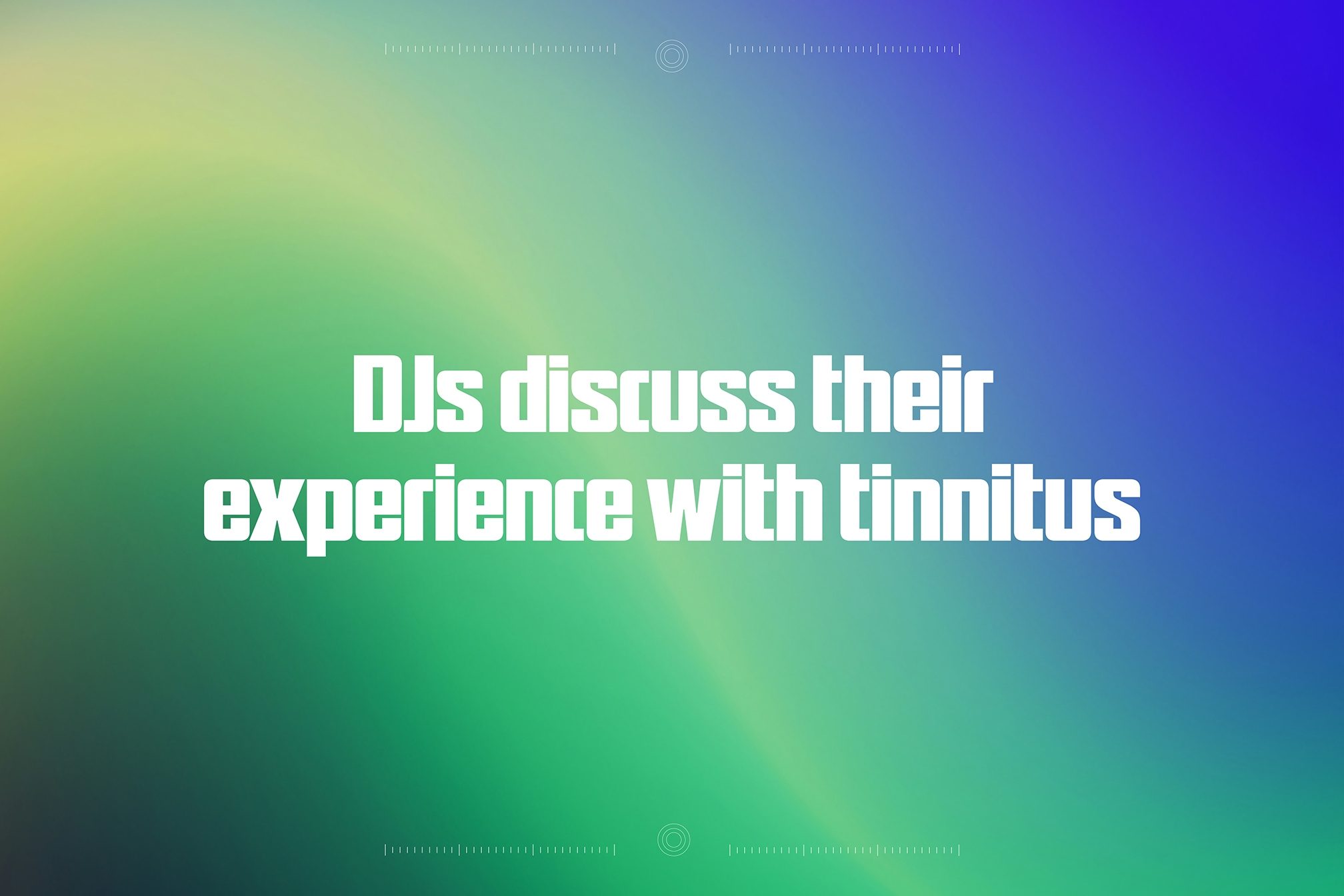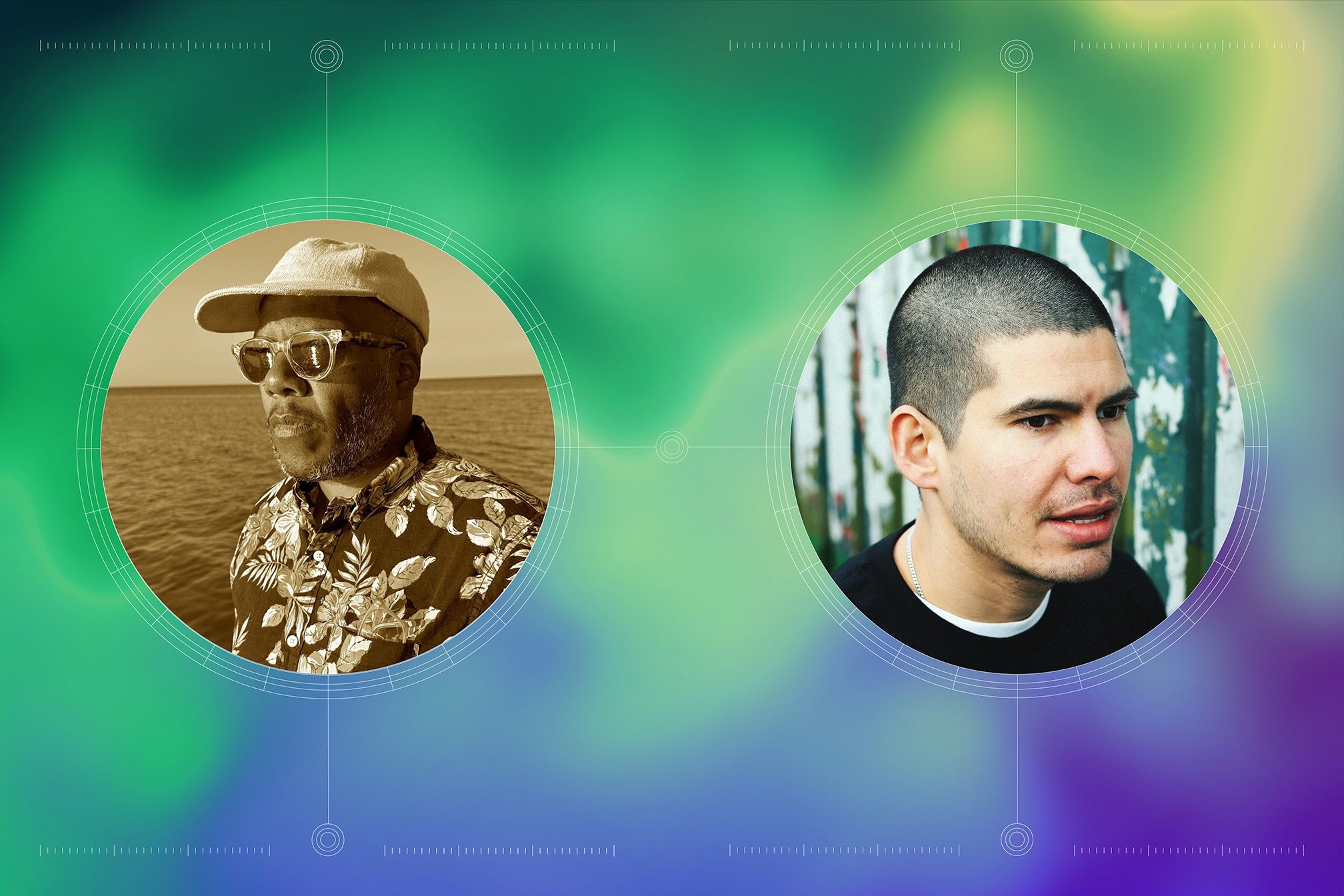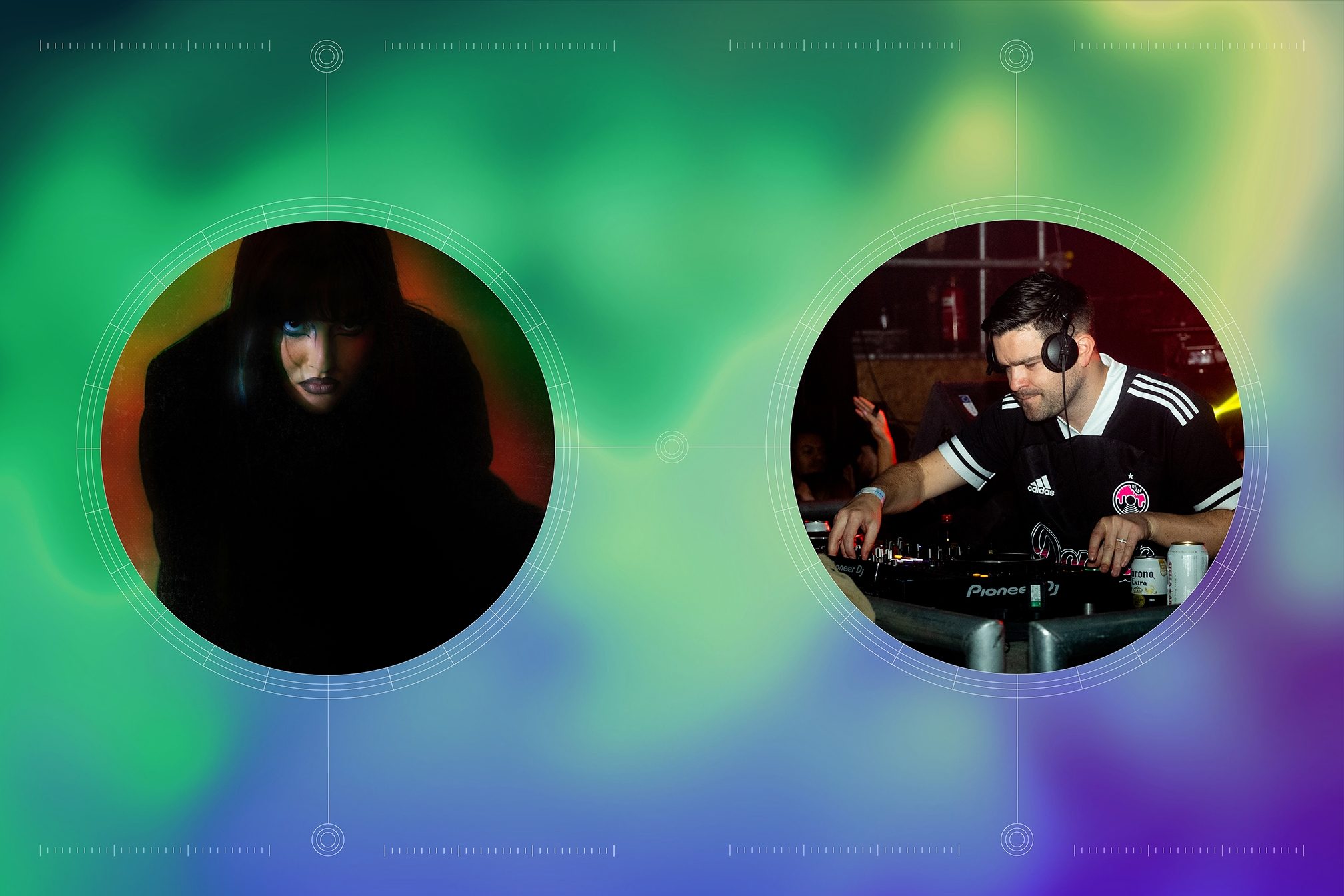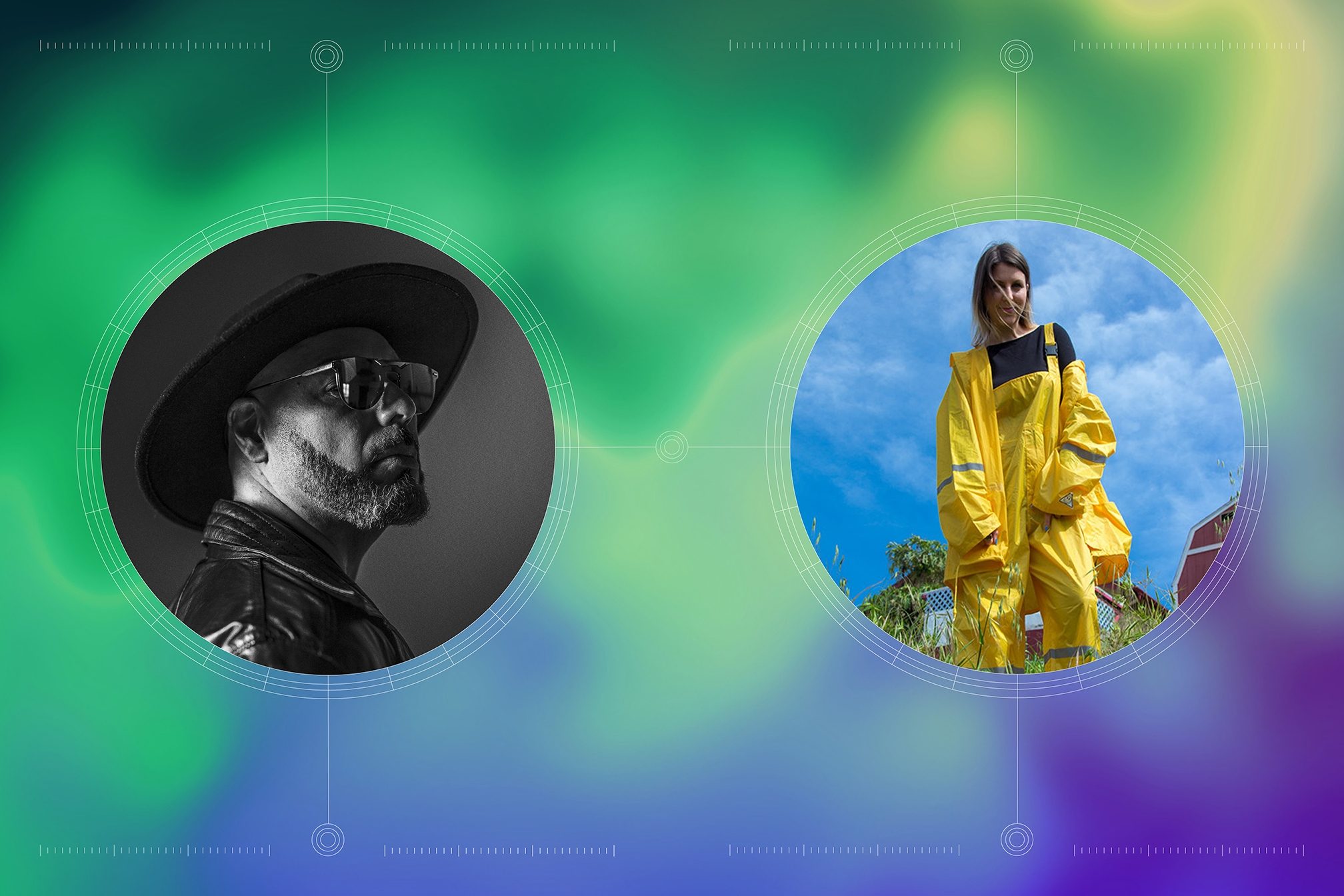 Features
Features
How tinnitus affects DJs' life and work in music
7 DJs discuss their experience with tinnitus and share advice for dealing with it
Tinnitus Awareness Week 2024 takes place across February 5 - 11. We're joining the campaign with a series of features raising awareness about ear damage and promoting protection. Check out the ongoing series across our website and socials.
For many DJs and producers, tinnitus is an unfortunate side effect of overexposure to the noisy environments of clubs, studios and even headphones without protecting their ears. There are different types and it varies in length and intensity, but there is no cure, and once it develops it’s something people have to learn to live with and find ways to alleviate the symptoms.
Read this next: “My life changed overnight”: Dealing with sudden hearing loss and tinnitus
To help understand how tinnitus affects artists and what others can do to cope with it, we spoke to seven DJs about how tinnitus impacts their life and work in music. We also asked if they have found any methods, treatments and resources that help, and any advice they have for people who are getting into music or just noticing the early stages of tinnitus.

Laksa
The main way tinnitus impacts me at the moment is feeling restricted. Ultimately I’m having to give my ears a breather more often, which can mean: not going out to gigs; reduced time making music or DJing; having to be cautious at loud spaces when I don’t have plugs with me; etc. When I have spikes, it really does feel all consuming at points, but thankfully that’s rare. As time goes on the spikes feel less intense emotionally too.
The OTO app has been super helpful for me. It’s basically CBT for tinnitus. I can say a lot with what helps me, but I think just doing this app will be more helpful and insightful [for everyone].
I would 100% recommend getting earplugs. I have ACS moulded pro series, -26. I was recommended either -17 or -26 for clubbing and DJing. I’d advise wearing them when you mix (home and at the club), trust me you can get used to them.
Beyond that it’s regular stuff like giving your ears rest, speaking to your doctor (though unfortunately I’ve not found them too helpful), and looking after yourself — poor sleep and stress can definitely contribute to spikes.
For anyone struggling with it, it definitely doesn’t mean you can’t do music anymore, and most likely it can and will get better.
Read this next: 9 ways to make living with tinnitus easier
LDLDN
Having tinnitus definitely affects your quality of life, both inside and outside music. In the studio, long, loud sessions are not advisable because the ringing afterwards is unpleasant. DJing in a club needs to be managed, with ear defenders before and after sets, and headphones and monitors turned down a bit. Night time is when the ringing is at its loudest, so sleep can be affected after really hammering your ears.
Getting more sleep definitely helps. Try and reduce your stress levels. CBD might be a shout. Be smart about how long and loud you listen to music for. Protect your ears when in clubs or studios (or any loud place like a tube station!). Use background, ambient noise when you're in quiet spaces to equalise the tinnitus.
In terms of advice: don't be cheap - buy some professional ear protection, which can be gotten at a discount if you ask around. Don't worry, because that only makes things worse. Don't stop doing what you love - just don't be daft about how you listen to music. Oh, and if you know people who own clubs, get them to install better soundsystems because bad sound quality will ruin your ears like nothing else.

Lila Tirando A Violeta
When I was first diagnosed with pulsatile tinnitus it highly impacted me, to the point I could barely sleep and I didn’t play live for a while, only making music with headphones on. But as years progressed I got used to it and found lots of different mechanisms for coping with it.
A small but key thing for me was finding a constant and comfortable sleeping position and a suitable set of pillows, which allowed me to cope better at night and that was key for functioning better. Plus I frequently have headphones on even if they’re muted or with white noise on, and I always wear ear protection for gigs.
I know it sounds like a cliché but your body does get adjusted to tinnitus overtime. It can take a long while, but you stop minding it as much as you did when you first got diagnosed. Be as patient as you can and try your best not to go desperate with it, because it will only make the frequency or pulsation more noticeable.
Read this next: The different types of tinnitus and how to spot the signs
Plastician
Tinnitus has been an ongoing thing for me for many years now, I can't even be sure exactly when it started, it's just gotten progressively louder and more impactful as I've gotten older - probably due to the ongoing demands of my hearing working in the kind of environments we do as DJs/producers. It mostly affects me hearing people at a normal volume; I'd say the most damaged frequency range of my hearing is right where the human voice sits, which causes all kinds of problems in loud environments or when talking to people when I can't also see their mouth moving. I've become quite dependent on lip-reading while listening in the past four or so years now, and always have subtitles on when watching television. Mixing down my own productions can be almost impossible - it's never been my forté anyhow, but now it's pretty hard and I actually rely a lot on looking at the waveforms / EQ levels for feedback on what's missing in the frequency range of a sound or the song as a whole.
I've not personally had any joy with anything I've tried to help deal with it. I'm quite fortunate in that I've been able to be quite accepting of it and work around it as much as possible. It's something out of my control now so I've had to come to terms with that and all I can do now is try my best to protect my ears from any further damage. I do look out for things all the time. I hear meditation is good, but I've never had much success when trying it.
I'd definitely advise everyone to wear hearing protection, namely in-ear moulds. I had used these in the past before losing a pair. I was quite happy to wear them out and about in loud environments, I could still hear the music and people near me talking to me while I wandered through a venue or listened to other DJs playing. My main issue was wearing them while playing my own set. Within a few tracks I would take them out because I really missed hearing the reaction in the room - my ear protection pretty much nullified this, so it was a bit like mixing inside your headphones without monitors on. I really couldn't get past that which led to me often taking the protection out when it is most vital - stood right next to a monitor! I wish I could go back now and just learn to get on with it with the protection in. I might be in a far better spot now if I'd done that.

Roger Sanchez
Tinnitus makes you question everything you listen to. The ever-present ringing is a background to every track and sound you hear, and it can be frustrating if you want true silence to listen to things clearly. Thankfully, I have been able to reduce it over time and, although I still have it, It has become manageable.
I use earplug filters when I DJ which helps protect my ears from the loud volumes of the booth monitors. I turn down the monitors when I'm not in a mix and I listen to headphones at a much lower volume than I used to. I have also trained myself to filter it into background noise when I am listening to speech or music. Prolonged loud music exposure does exacerbate it but I try to limit the amount of uninterrupted loud music time.
Everyone should get tested, get earplugs for loud places, and get accustomed to DJing or performing with filters, as it will help you reduce your tinnitus over time.
SHA SHA KIMBO
As producers we are used to bending and manipulating sine waves. Tinnitus is like have a constant sine wave playing 24 hours a day. It’s something I’ve dealt with for most of my life. In the ’90s we would freak the speakers. Little did we know years later this would affect our hearing and prove to give all of us horrible tinnitus. The older I got the worse it got. I finally realised that I needed ear protection.
Tinnitus impacts my daily life as I literally cannot sleep without white noise. If I don’t have it on I can constantly hear a sine wave. Sometimes it’s quiet and other times, when I am really stressed out, it’s so loud and will give me a massive headache. If I don’t wear ear protection when I DJ or produce then my head will buzz all night after my set. It can be really painful and mentally exhausting.
When it gets really bad I try to sit down and meditate. It’s very intense but meditation helps dissociate, especially if I do an internal mantra based meditation. I feel as if stress makes it worse, so meditation helps calm the body and the mind. After about 30 minutes, I am calmer and the noise goes down a few notches. It never really goes away though. I also started doing acupuncture in hopes that it will help.
Wearing ear protection at my gigs really made a huge difference. DJ Wheez-ie told me to put my ear protection in while in the taxi on the way to the club so your ears will adjust. This was a fabulous idea and I do this for every gig now. It’s worth taking the extra steps to protect your hearing. By the time I hit the club my ears have adjusted and I’m ready to spin in peace.
Everyone should get custom ear protection. Make sure you have back ups as well! Use the ear protection for playing and going to shows, and use it while making music. A lot of people don’t realise music production can impact your hearing as well. Preventing tinnitus is key because currently there are no ways to fully correct it. Being conscious of tinnitus and using ear protection is a huge part of being a happy and healthy raver.
Telefon Tel Aviv
My tinnitus improved by about 90% when I quit smoking. Coupled with custom-moulded earplugs at loud shows, this has largely curbed it from happening several times a week to now maybe once a year. The problem with tinnitus when it’s happening is that I’ve never found an effective way to make it go away, and I have to just wait it out like a migraine. A noise machine or William Basinski can help while sleeping.
Patrick Hinton is Mixmag's Editor & Digital Director, follow him on Twitter



